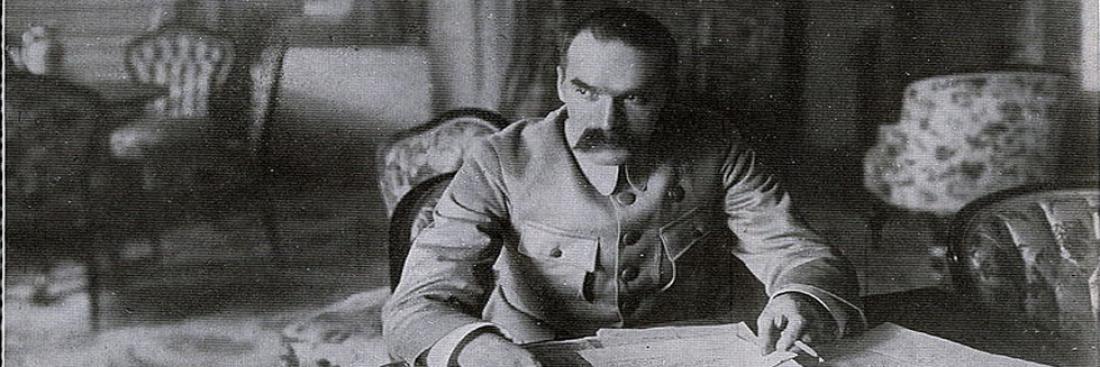
Józef Piłsudski, at the time he became the first head of state (Naczelnik Państwa) of the Polish Republic, 1919. Source: L'Album de la Grande Guerre, L'Illustration.
The Polish in France, 1914-1918
In 1914, split between Russia, the Austrian-Hungarian Empire and Prussia, the Polish were divided into two camps. Many hoped, at best, for independence to be granted by the future victor: the National Committee of Warsaw was banking on Russia, while the National High Committee of Vienna had their hopes in Austria, whose armies included Pilsudski's legions (30,000 men).
It rapidly became clear that the main threat to Poland's future came from Germany: Warsaw's occupation by the Reich's troops in August 1915 and the creation of a new kingdom announced in November 1916 by Governor-General Von Bessemer, who sought to recruit Polish soldiers.